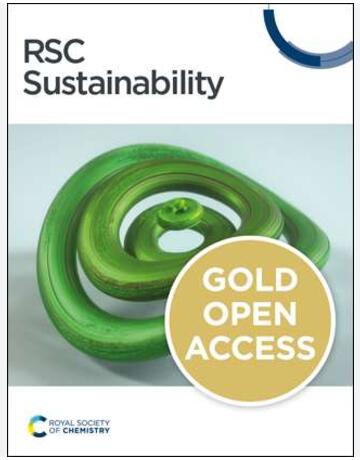通过越南绿色建筑运动促进城市健康:跨部门视角
IF 3.3
3区 环境科学与生态学
Q2 ENVIRONMENTAL SCIENCES
引用次数: 0
摘要
城市公民的健康在很大程度上取决于他们的生活环境是如何规划、建造和运营的,但关于可持续建筑的科学和政策话语往往忽视了这一点。此外,尽管健康与建筑环境特征之间的复杂关系需要以系统为导向的思维和跨学科干预,但直到最近,它们主要是通过传统的基于狭隘部门(主要是技术官僚)的方法来解决的(例如,在能源效率或碳减排方面)。然而,本文调查了越南可持续建筑领域的利益相关者如何看待健康共同利益。它考察了从越南胡志明市进行的一项大规模家庭调查、六次主题网络研讨会和十一次专家访谈中收集的经验见解,重点是一项绿色建筑认证项目案例研究。除其他外,该论文指出,购房者对绿色建筑健康效益的高度重视与利益相关者对节能效益的关注之间存在着挑战性的不匹配,而节能效益并不一定是购房者最迫切关注的问题。因此,该论文得出结论,应更强烈地将改善健康和福祉视为绿色建筑的共同利益。同样重要的是,本文还提请注意在实施可持续发展目标3(“确保所有年龄段的健康生活和促进福祉”)和可持续发展目标11(“使城市和人类住区具有包容性、安全性、韧性和可持续性”)的学术和实践工作中的重要系统方法。本文章由计算机程序翻译,如有差异,请以英文原文为准。
Promoting Urban Health through the Green Building Movement in Vietnam: An Intersectoral Perspective
The health of urban citizens is largely defined by how their living environments are planned, built, and operated, but scientific and policy discourse about sustainable building has often ignored this. Furthermore, while the complex relations between health and the characteristics of built environments require system-orientated thinking and interdisciplinary interventions, they have—until recently—mainly been addressed with conventionally narrow sector-based (mostly technocratic) approaches (e.g., in regard to energy efficiency or carbon reduction). This paper, however, investigates how health co-benefits are perceived by stakeholders in the field of sustainable building in Vietnam. It examines empirical insights collected from a large-scale household survey—with a focus on a green building-certified project case study—conducted in Ho Chi Minh City, Vietnam, six thematic webinars, and eleven expert interviews. Among other things, the paper points out a challenging mismatch between the high importance homebuyers place on green building health benefits, and the focus of stakeholders on energy-saving benefits, which are not necessarily the homebuyers’ most pressing concerns. Therefore, the paper concludes that improved health and well-being should be more strongly considered as co-benefits of green buildings. Equally important is that this paper also brings attention to the essential systemic approach in both academic and practical efforts toward the implementation of the SDG3, to “ensure healthy lives and promote wellbeing for all ages”, and SDG 11, “to make cities and human settlements inclusive, safe, resilient and sustainable”.
求助全文
通过发布文献求助,成功后即可免费获取论文全文。
去求助
来源期刊

Sustainability
ENVIRONMENTAL SCIENCES-ENVIRONMENTAL SCIENCES
CiteScore
6.80
自引率
20.50%
发文量
14120
审稿时长
17.72 days
期刊介绍:
Sustainability (ISSN 2071-1050) is an international and cross-disciplinary scholarly, open access journal of environmental, cultural, economic and social sustainability of human beings, which provides an advanced forum for studies related to sustainability and sustainable development. It publishes reviews, regular research papers, communications and short notes, and there is no restriction on the length of the papers. Our aim is to encourage scientists to publish their experimental and theoretical research relating to natural sciences, social sciences and humanities in as much detail as possible in order to promote scientific predictions and impact assessments of global change and development. Full experimental and methodical details must be provided so that the results can be reproduced.
 求助内容:
求助内容: 应助结果提醒方式:
应助结果提醒方式:


